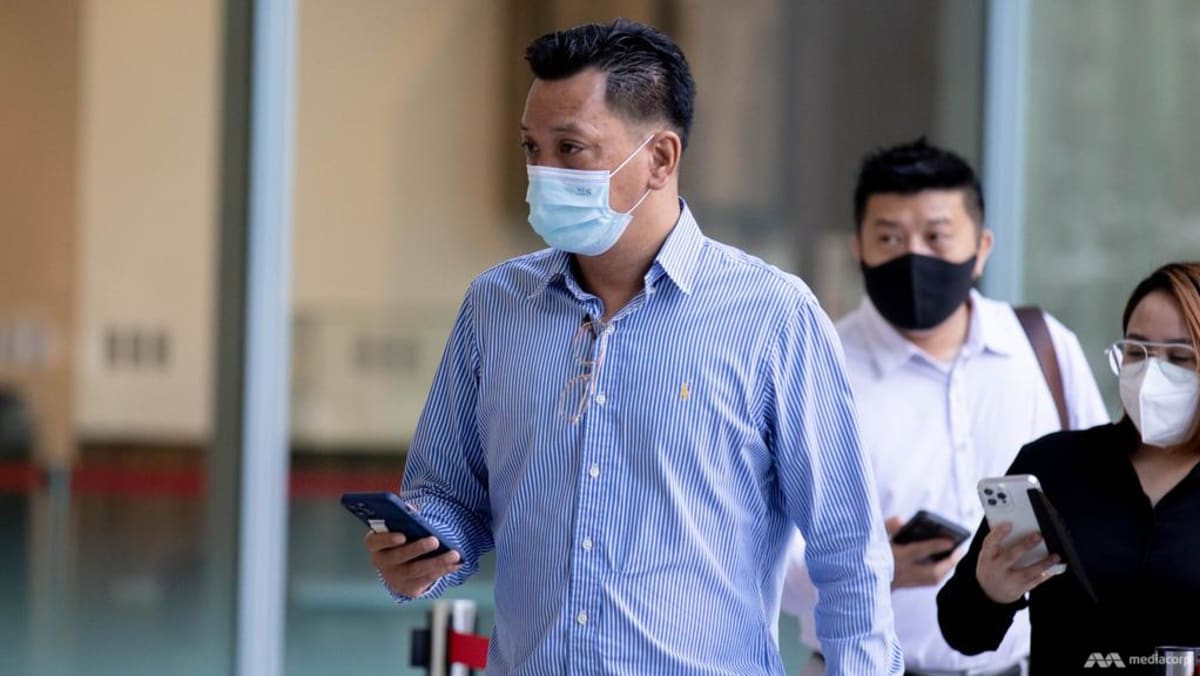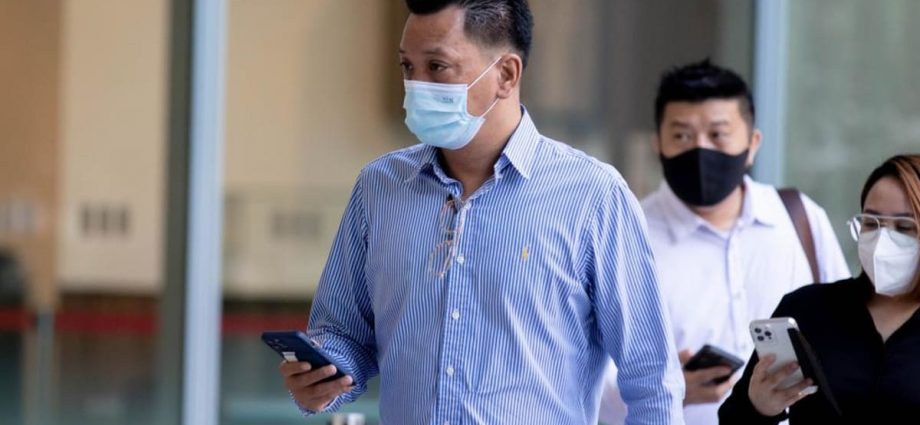
SINGAPORE: The prosecution on Wednesday (Aug 24) appealed for jail time for the convicted former CEO of food and beverage group The Prive Group.
Jean-Luc Kha Vu Han asked a 13-year-old boy lewd questions, punched his temple and slapped him in a shopping mall lift in 2019. He was intoxicated at the time.
He was previously sentenced to a 12-month mandatory treatment order (MTO) after pleading guilty to a charge each of voluntarily causing hurt and intentionally causing alarm.
An MTO directs an offender suffering from certain treatable psychiatric conditions to undergo psychiatric treatment.
Vu Han was diagnosed with bipolar disorder. An Institute of Mental Health psychiatrist found that there was a contributory link between his psychiatric condition and the offence.
A district judge previously described his offences as “deplorable”, but said they were “not so heinous as to rule out the rehabilitation of (Vu Han) completely as the dominant sentencing consideration”.
Justice Vincent Hoong reserved judgment for a later date, after both parties presented arguments at the High Court.
VU HAN’S PSYCHIATRIC CONDITION
Deputy Attorney-General Tai Wei Shyong and Deputy Public Prosecutor Goh Yong Ngee argued that awarding an MTO on the facts of the case would “send the wrong message” on protecting the public interest.
“This was a senseless, unprovoked assault perpetrated against a young victim, resulting in both physical and psychological harm,” they said, calling for a short jail sentence.
The prosecution had sought at least eight weeks’ jail and a fine.
The incident on Nov 22, 2019 took place when Vu Han, his friend, the victim and the victim’s 12-year-old brother were in a lift in Parklane Shopping Mall.
Vu Han asked the victim a question about his private parts and asked the victim if he wanted to see his private parts, to which the victim replied no.
Vu Han then said that he could arrange a sex act for the victim. The boy was alarmed and said no.
Vu Han suddenly punched the boy on his temple and said, “You want to challenge me?” He later also slapped the victim’s cheek.
The victim suffered a bruise on his temple and redness on his arm. After the incident, he experienced fear of taking lifts, had flashbacks of the incident and could not sleep well.
The prosecutors said that Vu Han first saw a psychiatrist almost a year after the offences were committed, and that his psychiatric evaluation took place only after he was charged in June 2020.
They also said that Vu Han was initially diagnosed by another doctor with adjustment disorder, but “abandoned” this for the diagnosis of bipolar disorder.
“Taken cumulatively, we submit that the psychiatric diagnosis was sought for the purpose of seeking an MTO in this case,” the prosecutors contended.
They argued that there was no indication Vu Han had difficulty appreciating the nature of his actions or that his bipolar disorder impaired his self-control.
Calling the link between Vu Han’s psychiatric condition and his offences “tenuous”, the prosecutors said there needed to be a “direct and proximate link”.
“Otherwise, every instance of mental illness can be used as an excuse for criminal conduct, even if the said illness does not, in fact, contribute to the offence,” they argued.
PUBLIC INTEREST OR PUBLIC SENTIMENT?
Vu Han’s lawyer Ms Teh Ee-Von questioned whether the prosecution was motivated by the public interest or public sentiment.
“The deputy public prosecutor should not allow public sentiment to sway their arguments. Justice should be blind in the sense that offenders with similar offences causing similar harm should be treated in the same way,” she said.
In response, Mr Tai said he would take the unusual step of explaining in open court why the prosecution was appealing the case.
He said that the way the case had been argued in the lower court, the outcome and how it was reasoned in the judgment were “quite disturbing” to the prosecution.
He also said that the public interest was strong as this case would set a precedent for how other cases were argued, and could raise questions about how the legal system deals with such offences.
Ms Teh argued that her client had shown a lot of rehabilitative potential, having voluntarily sought psychiatric treatment.
Referring to Vu Han’s initial diagnosis of adjustment disorder, she said her client sought a second medical opinion as he still felt poorly and felt that something was not right with his treatment.
She also pointed out that her client stopped drinking after learning that the symptoms of bipolar disorder could be exacerbated by alcohol. Vu Han was not aware of his condition at the time of the offence, she said.
The lawyer challenged the prosecution’s description of the attack as unprovoked, arguing that a psychiatrist had found Vu Han was likely having a manic episode with possible psychosis during the incident.
Citing the psychiatrist’s findings, Ms Teh said Vu Han believed he had heard the boy making remarks about the conversation he was having with his friend in the lift before the offence.
The attack may appear to have been unprovoked on the outside, but internally, it was sparked by Vu Han’s bipolar disorder, she argued.

